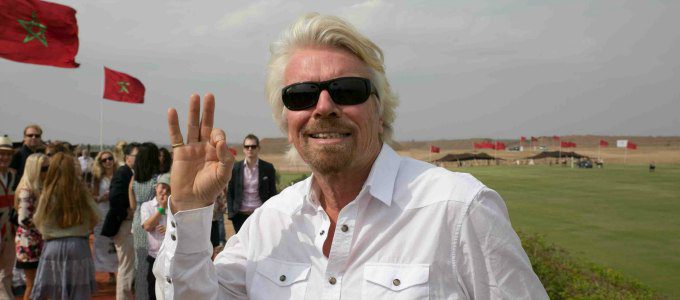Richard Branson is part expert, part executive. Not every corner office leader has this clout, and it's up to learning leaders to find someone better to promote their learning programs. (Photo courtesy of Land Rover MENA, via Wikimedia Commons.)
When looking for someone to sell your learning initiatives to employees, consider this: Psychologically, learners might be more likely to listen to an expert than one of the executives at the company.
Ben Parr, former co-editor at Mashable.com and author of “Captivology: The Science of Capturing People’s Attention,” said one of the seven captivation triggers that attract and hold people’s attention is reputation — that a product, idea or presentation has some authority or expert backing it.
The Seven Captivation Triggers
Ben Parr, author of “Captivology: The Science of Capturing People’s Attention,” said these seven attributes capture and hold attention:
1. Automaticity: Subconscious attention to sights, sounds, colors and other sensory stimuli.
2. Framing: The subject pertains to a person’s frame of interest.
3. Disruption: Something that seems out of place that we have to assess as a threat or just an oddity.
4. Reward: Intrinsic and extrinsic rewards like money, food, sex, etc.
5. Reputation: Authority, expert and crowd endorsement.
6. Mystery: In compulsiveness for completion, we have to finish the puzzle or solve the riddle.
7. Acknowledgement: We feel validated and paid attention to, so we return the favor.
Emory University published a study in 2009 that showed how effective expertise is to buy-in. The researchers put people in fMRI scanners to choose what to do with money, which showed the decision-making portions of the brain lighting up. When exposed to advice given by experts, however, that part of the brain stopped working as hard — the subjects were offloading the decision onto whatever advice they had been given, no matter how conservative or risky, because they trusted the expert’s credentials.
The same goes for celebrity endorsement, as famous people are apparently cultural experts. In 1890, journalist Nellie Bly traveled the world in 72 days and simultaneously had her name slapped on suitcase, soap and coat ads. Since then, people are gaga for people like, well, Lady Gaga, who hypes everything from high-line Versace to low-price retailer H&M.
“Saying you’re a fan of Justin Bieber and Jennifer Lawrence versus One Direction says who you are and the community you belong to,” Parr said. People we use to define ourselves hold our attention, and often we revere these people as experts in culture.
Of course, learning leaders will be hard pressed to get the Biebs as a spokesperson for their newest development program — would they really want to if they could? — but they can still rely on the right endorsements to attract employees. Academic experts are the most trusted spokespeople, but CEOs rank at the bottom of the list, Parr said.
The reason why is pretty easy to guess. An academic doesn’t have an ax to grind, but a CEO with always has his or her bottom line in mind.
Of course, Parr said CEOs with authority over an employee’s paycheck and employment are different — for example, I’m more likely to take learning based on an endorsement by my boss than someone else’s supervisor because there’s a reward, my salary, on the line. But what if both authority and expertise merged? The answer is in powerhouse people like Virgin Group’s Richard Branson, who are both expert and CEO. They excel by having clout in an area other than the corner office.
“It’s not just Ph.D.s but also experience,” Parr said. “I’m an expert in technology because of my time at Mashable. People already see me as that, so when I talk about technology people know I’m not talking out of my ass, that I have that experience.”
So listen up, learning leaders: Before you affix your CEO’s stamp of approval to your new leadership development initiative, make sure there’s more than a title to support that individuals’ authority.















